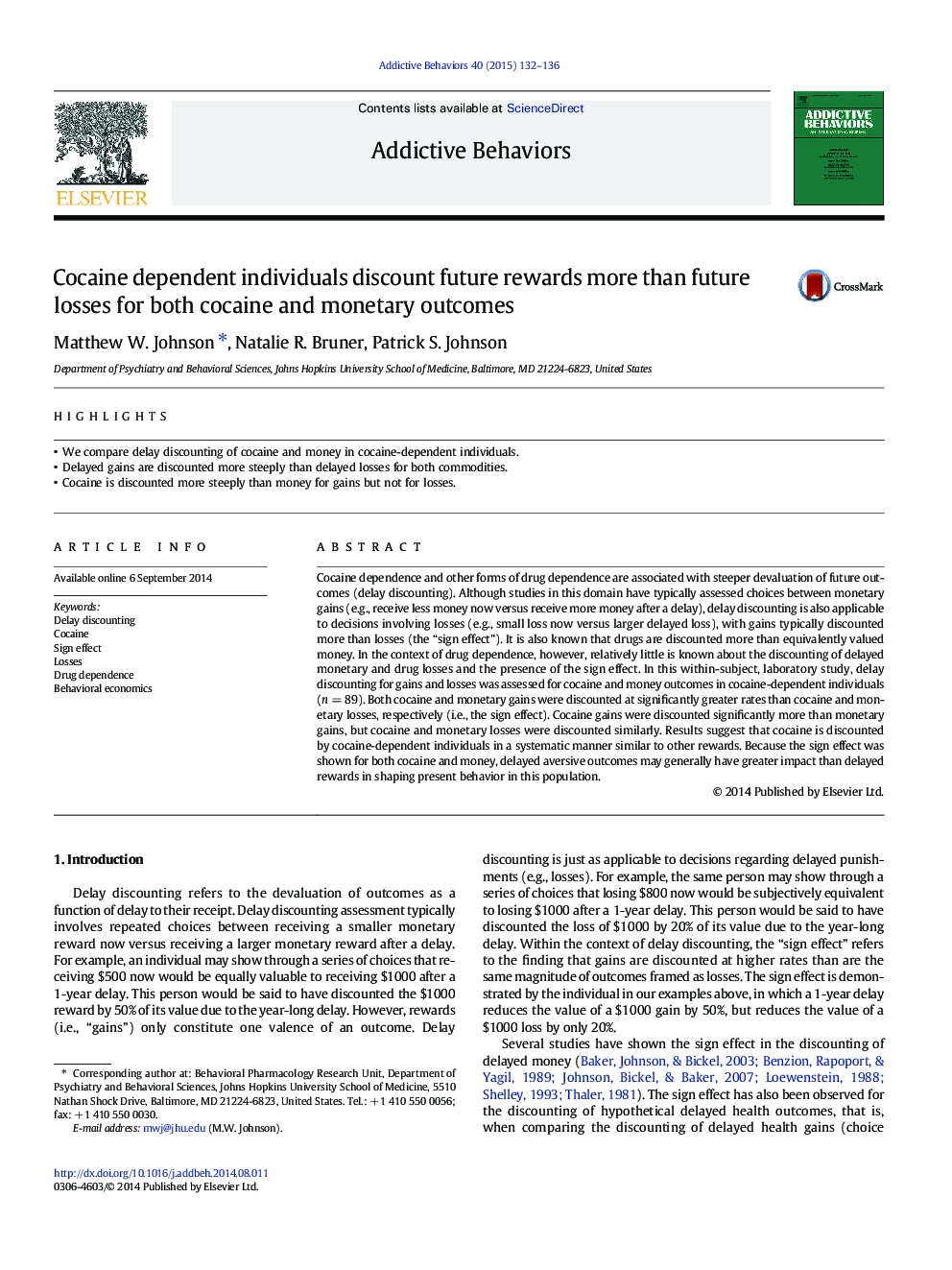| Article ID | Journal | Published Year | Pages | File Type |
|---|---|---|---|---|
| 7261277 | Addictive Behaviors | 2015 | 5 Pages |
Abstract
Cocaine dependence and other forms of drug dependence are associated with steeper devaluation of future outcomes (delay discounting). Although studies in this domain have typically assessed choices between monetary gains (e.g., receive less money now versus receive more money after a delay), delay discounting is also applicable to decisions involving losses (e.g., small loss now versus larger delayed loss), with gains typically discounted more than losses (the “sign effect”). It is also known that drugs are discounted more than equivalently valued money. In the context of drug dependence, however, relatively little is known about the discounting of delayed monetary and drug losses and the presence of the sign effect. In this within-subject, laboratory study, delay discounting for gains and losses was assessed for cocaine and money outcomes in cocaine-dependent individuals (n = 89). Both cocaine and monetary gains were discounted at significantly greater rates than cocaine and monetary losses, respectively (i.e., the sign effect). Cocaine gains were discounted significantly more than monetary gains, but cocaine and monetary losses were discounted similarly. Results suggest that cocaine is discounted by cocaine-dependent individuals in a systematic manner similar to other rewards. Because the sign effect was shown for both cocaine and money, delayed aversive outcomes may generally have greater impact than delayed rewards in shaping present behavior in this population.
Related Topics
Life Sciences
Neuroscience
Behavioral Neuroscience
Authors
Matthew W. Johnson, Natalie R. Bruner, Patrick S. Johnson,
